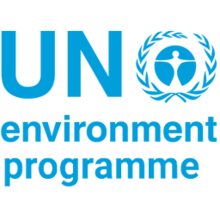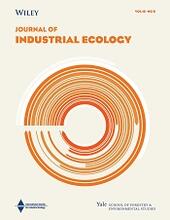Resources

UNEP International Resource Panel Assessment Areas & Reports
IRP investigates the world’s most critical resource issues with a view to developing practical solutions for government policymakers, industry and society. The IRP’s scientific assessments cover the following areas: Decoupling, Cities, Environmental Impacts, Water, Metals, Land and Soils, Food, REDD+ and Trade.
Bibliographic information for the area reports is listed here.

The Journal of Industrial Ecology (JIE) is a world-class, peer-reviewed bimonthly journal founded in 1997 by the Center for Industrial Ecology at the Yale School of the Environment. The journal publishes sustainability and circular economy research which considers the relationship between the environment and the socio-economic system. It focuses on understanding the environmental impacts and drivers of the stocks and flows of material, energy and other resources in production and consumption activities. JIE, whose founding editor was Reid Lifset of the Center for Industrial Ecology at Yale, publishes cutting edge research and seeks to provide a forum for continuing exchange of information and opinions through contributions from scholars, environmental managers, policymakers, advocates and others involved in environmental science, management and policy. The journal is now owned and managed by the International Society of Industrial Ecology.

The International Society for Industrial Ecology (ISIE) promotes industrial ecology as a way to address sustainability challenges and achieve a circular economy. The science of industrial ecology applies a systems perspective to explore how material and energy are used by society to find solutions to complex environmental problems. The ISIE facilitates communication among scientists, engineers, policymakers, managers, and advocates who are interested in better integrating environmental concerns with economic activities. Its mission is to promote the use of industrial ecology in research, education, policy, community development, and industrial practices.
The ISIE has a growing membership of over 700 members, spread over all continents. Within the society, various sections organize events and provide resources focused on key methods and approaches. The Student Section supports students and early career researchers through scholarships and tailored events.
The ISIE was initially based at the Center for Industrial Ecology at the Yale School of the Environment. After almost two decades of support from the university, the ISIE became an independent non-profit organization in 2018, legally registered in The Netherlands.

The Industrial Ecology (IE) Student Interest Group attracts students from the private, public, and nonprofit sectors who are interested in industrial ecology. The IE SIG represents a variety of interests, including environmental management, energy, climate change, transportation, and corporate sustainable responsibility, and environmental consulting.
Each year, the IE SIG organizes social events, field trips, an alumni panel event and guest speakers. Previous events have included a speaker series on energy by visiting faculty, field trips to Terracycle, and internship panels. IE students work closely together, inside and outside the classroom, sharing interests, inSIGhts, and lots of pizza. Want to get involved? Email cie@yale.edu to get on the IEME mailing list.